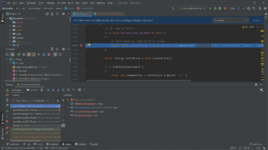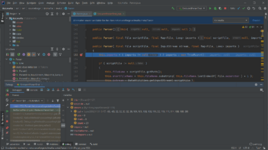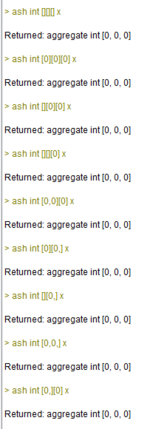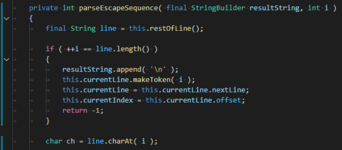Do you mean something like this:I'm still poking at curretLine being "null" in the debugger and still wish I understood while a test that throws an (unexpected) Exception doesn't fail in the IDE.
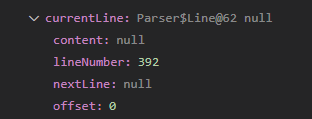
With the first line reading something like v currentLine: Parser$Line@<whatever> "null" (with quotes around the null)
If so, it's maybe not an error. The IDE is probably the one not doing the null check; it maybe tries to do
Java:
String stringValueOfField = "\"" + field.toString() + "\"";

